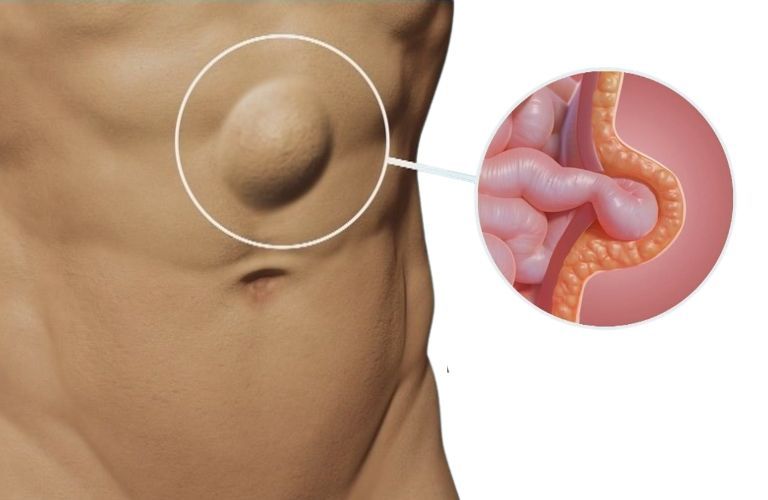Hernia is a condition that occurs when the lining of an organ or other tissue pushes through and protrudes into the space between two adjacent weak layers of skin. According to Dr. Dhaval Mangukiya, a hernia specialist in Surat, there may be many causes, including muscle weakness, excess pressure, poor posture, and genetic factors, which can lead to this condition. He further explains the various treatment options which may include surgery, physical therapy, or stretching exercises.
What causes a hernia?
Several common causes of muscle weakness or strain that can lead to hernia include:
- Aging
- Pregnancy, especially having multiple pregnancies
- Having obesity
- Lifting heavy weights
- Injury
A weak spot in the muscle wall- The most common is an inguinal hernia, which occurs when part of the bowel pushes through an area where it shouldn’t be able to go. It can happen because there’s not enough abdominal muscle tone.
Strains or injuries to the abdomen- Injuries can occur if you fall and hit your lower back on something hard—like concrete—or if someone else bumps into you from behind while walking downstairs together.
As per the hernia specialist in Surat, it can cause sudden stretching of weak abdominal muscles and allow organs such as intestines and liver tissue too much freedom inside their protective covering called peritoneum (which lines up around each organ like layers holding glass jars together).
Watch the whole video on Hernia:
What are the symptoms of a hernia?
Hernia symptoms include:
- Pain in the groin, abdomen, or back
- Pain is worse when you cough, breathe deeply or lie down.
- An abnormal sensation in your belly button (absent or bulging)
- Weakness or pressure in your groin
- A burning sensation at the bulge
You should immediately undergo hernia surgery in Surat if you have any signs and symptoms. It’s important to get treatment for a hernia as soon as possible because it can cause serious complications if left untreated.
Treatment of hernia:
An expert hernia surgeon would surely advise you that once hernia is detected it should be treated as early as possible by repairing with mesh within 1month of diagnosis. Early surgery will prevent complications like obstruction and strangulation .
The treatment of a hernia depends on the type and location of your hernia. For example, if you have an inguinal or femoral hernia, the most common type, you will require surgery to repair it.
You can undergo surgery in two ways: open and laparoscopic (where doctors use a tiny camera).
Open Surgery: With this procedure, doctors cut your abdomen to remove the defect through incisions made in the required area where the symptoms are felt.
It may require hospitalization for several days, after which you’ll go home with stitches holding together various parts of your body as they heal over time.
Laparoscopic Surgery: In this case, small incisions or keyholes are made through which a laparoscope is inserted by the doctors. It uses tiny cameras to easily look inside an organ without cutting its surface area.
In some cases, a truss (a supportive undergarment that helps to hold the hernia in place) may help you with the symptoms of a hernia. And to use a truss properly and ensure it fits well, it’s better to see an expert before using it.
If you are suffering from a hiatal hernia, several medications that reduce stomach acid can help you fight a hiatal hernia. These medications induce antacids, H2 receptor blockers, and proton pump inhibitors.
FAQs:
What is the main cause of hernia?
Several main causes of a hernia include weakening abdominal muscles, obesity, excessive weight gain, pushing or straining, and lifting heavy objects.
Is hernia a serious problem?
A hernia is a problem that’s not life-threatening, but it can be serious. The most common type of hernia involves an organ protruding through the abdominal wall and into the space between your skin and muscle tissue. This type of hernia occurs when organs move out of place due to muscle weakness or laxity in your abdomen wall.
What are the warning signs of a hernia?
There are a few signs that you should look out for. The first is a pain in the groin, abdomen, or back, depending on where your hernia is located. Other symptoms include Pain while coughing or sneezing; Pain at night when lying flat.
What are the three types of hernias?
Urogenital hernias (also called inguinal), Ventral (or scrotal), and Femoral (“ball”) or groin (“groin”) hernias.

